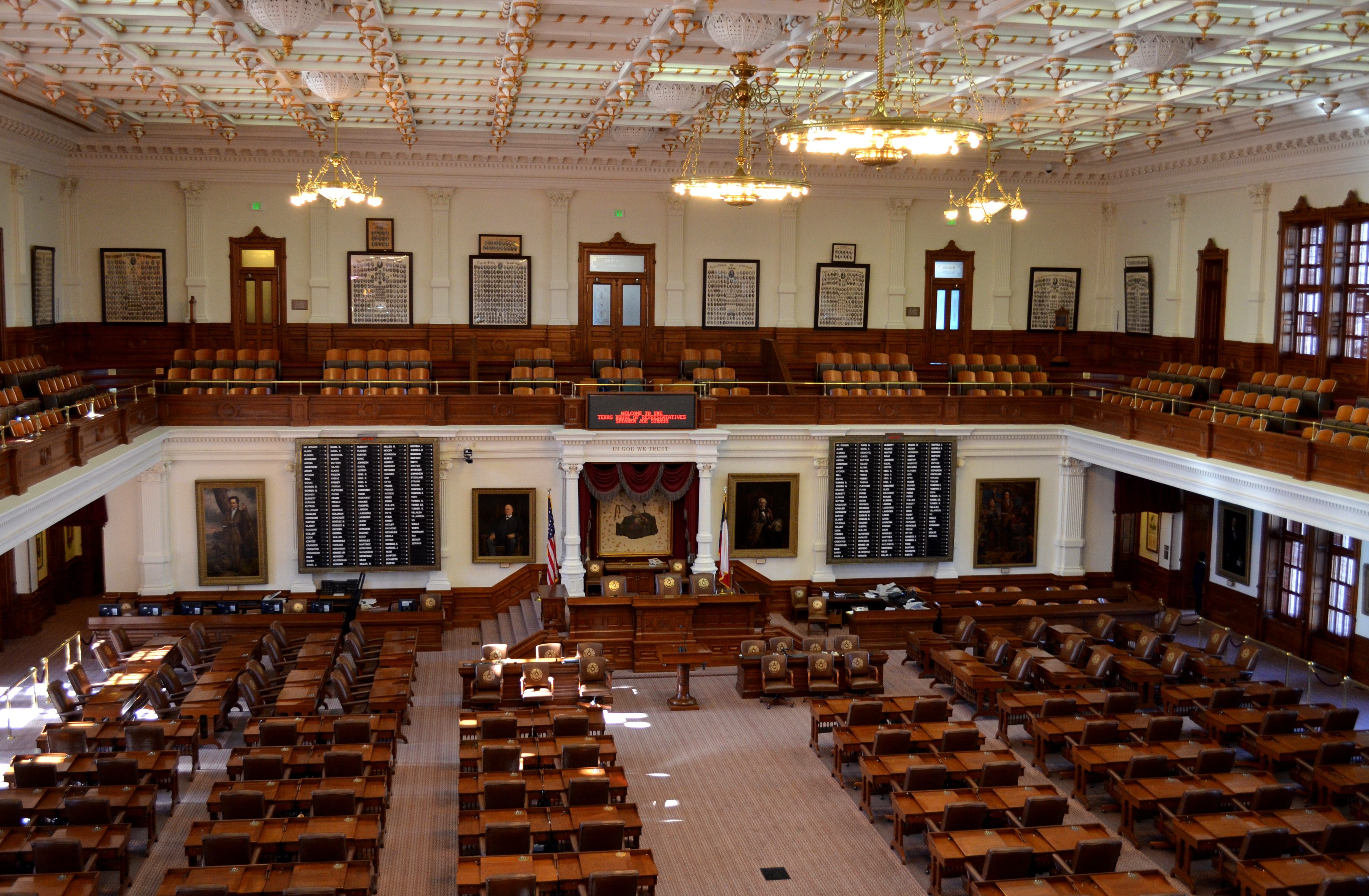NOTE: This article has been updated with additional information since it was initially published, including a statement from State Rep. Briscoe Cain.
More than two weeks after their colleagues in the Texas Senate, the Texas House has passed its version of property tax reform.
Having postponed consideration on three separate occasions, House lawmakers gave tentative approval to a substantially amended Senate Bill 2 on Tuesday, legislation that would lower the rate by which local government officials can increase taxes without first securing the support of the majority of their voters.
Currently, local government officials can raise taxes up to 8 percent. Should they attempt to raise taxes even higher, taxpayers can petition for an election to reject that tax increase. However, those petitions are rarely successful.
If SB 2 is passed, that rate would be lowered to 3.5 percent for cities, counties, and most taxing jurisdictions. However, the rate would not be adjusted for hospital districts or junior colleges.
Though the bill contains a provision lowering the rate to 2 percent for schools, bill sponsor—and Ways and Means Chairman—Dustin Burrows (R–Lubbock) argues the inclusion is only symbolic placeholder language. Burrows maintains that school rates are better addressed in the school finance reform legislation, House Bill 3, which is currently in the Texas Senate.
In laying out the legislation on the floor of the House, Burrows repeatedly insisted that while the legislation provided tools taxpayers can use to prevent future property tax increases, they won’t actually reduce tax burdens.
“I have stated this multiple times, and I will state it again: This legislation does not lower anyone’s taxes,” said Burrows. “It’s a transparency bill—no more, no less.”
The bill’s name, The Texas Taxpayer Transparency Act, now seems aptly more fitting for that very reason. Republican leaders in the Texas House seem hellbent on watering down the reformative aspects of the bill as originally filed and returning as little as possible of the $9 billion surplus in state government coffers back to taxpayers.
And perhaps it is for that reason that a small number of lawmakers in both parties sought to amend the legislation to provide more of the much-needed—and long-promised—permanent reform.
A major amendment was offered by State Rep. Briscoe Cain (R–Deer Park) early on and would have prohibited elected officials, lobbyists, and their immediate family members from being on the appraisal board.
Cain’s amendment caused a ruckus. And State Rep. Chris Turner (D–Arlington), the chairman of the House Democrat Caucus, and State Rep. Rafael Anchia (D–Dallas), the chairman of the Mexican American Legislative Caucus, opposed his amendment and asked him to withdraw it.
Cain initially refused but, after further discussions during a lengthy recess, conceded to Democrat demands and surrendered his amendment. State Rep. Tony Tinderholt (R–Arlington) later passed a similar provision prohibiting only elected officials—after he allowed State Rep. Ken King (R–Canadian) to carve out 150 of the state’s 254 counties from it.
Cain’s amendment, though, wasn’t the only one defeated. In fact, Cain may have played a role to that effect.
A proposal by State Rep. Jonathan Stickland (R–Bedford) to freeze home valuations upon the application of a homestead exemption was rejected before it could even be explained; it was killed on a point of order called on the amendment’s germaneness to the bill called by State Rep. Drew Springer (R–Muenster).
“The point of order is well taken and sustained,” said Bonnen after the lengthy discussion with parliamentarians on the dais. Bonnen’s statement upholding Springer’s point of order would serve as a familiar refrain through the rest of the afternoon.
State Rep. Roland Gutierrez (D–San Antonio) offered a pro-taxpayer amendment to lower the appraisal cap for homeowners from 10 percent to 5 percent. The amendment was killed on a point of order.
He then offered another pro-taxpayer proposal that would apply the 10 percent increased appraisal cap to commercial property—which is currently uncapped. After being afforded 10 minutes to express his frustration on the proceedings, that amendment was killed on a point of order as well.
According to Stickland, those points of order were called with the assistance of Cain, who could be seen on the floor huddling with Springer while Gutierrez was arguing for his amendment.
Never in my life did I think I would see Freedom caucus members help POO pro tax payer amendments on #SB2 #txlege @BriscoeCain
— Jonathan Stickland (@RepStickland) April 30, 2019
Cain told Texas Scorecard he worked as an active participant Tuesday when property tax reform, an issue he described as being “extremely important to [his] district,” finally reached the House floor. Stickland’s tweet, he insisted, is the result of poor communication between the two lawmakers. “As a part of that, I was involved in hundreds of conversations with members throughout the entire debate,” said Cain. “It has been alleged that I worked against pro-taxpayer amendments, which cannot be further from the truth, and, ultimately, is a severe misunderstanding on the part of my friend and colleague, Rep. Stickland.”
“I am hopeful we can continue to work together to ensure that this bill comes out the other end of the legislative process in the best form it can take,” Cain concluded.
But while the bill wasn’t improved, it wasn’t weakened, either, despite multiple Democrat attempts to dilute the reform being defeated on roughly party-line votes.
Stickland fueled the boiling over of the evening, though, bringing forward the final amendment for consideration. The contentious measure he offered would strike the newly added contingency clause in the bill. Amendment 48 would essentially decouple SB 2 from House Bill 3, which is currently in the Texas Senate committee process.
The clause Stickland was after is the language added by Burrows into the property tax reform legislation last week that will only afford taxpayers reform and relief if lawmakers pass the school spending spree contained in HB 3. As substituted by Senate Education Chairman State Sen. Larry Taylor (R–Friendswood), that legislation added a contingency clause of its own that makes half of the appropriated monies for property tax relief, as well as a homestead exemption increase, entirely dependent on the passage of sales tax increases by voters on the November ballot.
Burrows, obviously frustrated by the amendment, then was questioned further by Democrat State Rep. Yvonne Davis of Dallas, who cornered Burrows and forced him to articulate the codependency of the bills—with relief being the furthest issue down the line.
“I think you have a very fine amendment here, Mr. Stickland,” Gutierrez said from the back microphone, foreshadowing what appeared to perhaps be an interesting alliance forming for taxpayers before the vote with both sides.
Bonnen indicated that Stickland had requested a record vote and that he, himself, would be voting ‘no,’ a Texas House rarity. Most members followed suit and the amendment failed, garnering a meager 5 ayes and a resounding 143 nays. The vote was a clear indication that the body politic of the Texas House is squarely with Bonnen and his leadership team at the end of the day. Three Democrats and two Republicans supported separating the two bills: Democrat State Reps. Michelle Beckley (Carrollton), Yvonne Davis (Dallas), and Harold Dutton Jr. (Houston), and Republicans Briscoe Cain and Jonathan Stickland.
Several members rose to plaster the bill in criticism prior to the final vote, but it ultimately passed on second reading with strong support. SB 2 passed the Texas House 107 to 40. Third reading and final passage of the bill will occur tomorrow, according to Burrows.
Following final passage, the bill will likely be given an appointment of conference committees in both chambers to deliberate over the differences between this amended proposal and what the Senate has already passed. Those discussions are likely to embroil other proposals such as HB 3, the education spending spree that House lawmakers are calling reform, and a proposed sales tax increase that is gaining traction inside the Texas Capitol but needs two-thirds approval in both chambers.
Due to a provision added to SB 2 by Burrows, HB 3 must pass the Texas Legislature or the reforms in SB 2 will not take effect. Lawmakers have 27 days left in the regular session.





